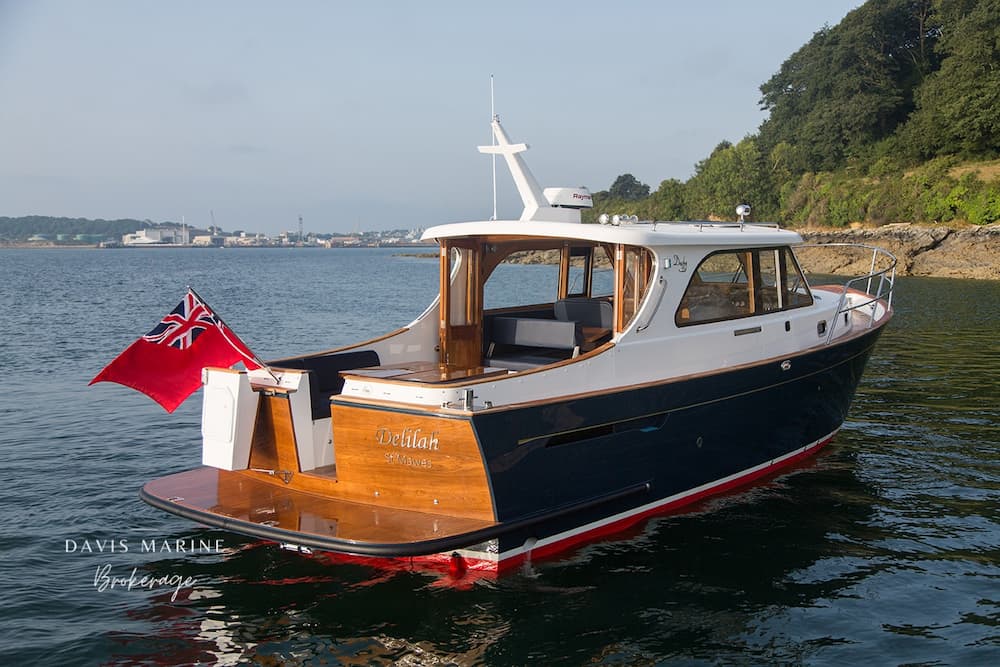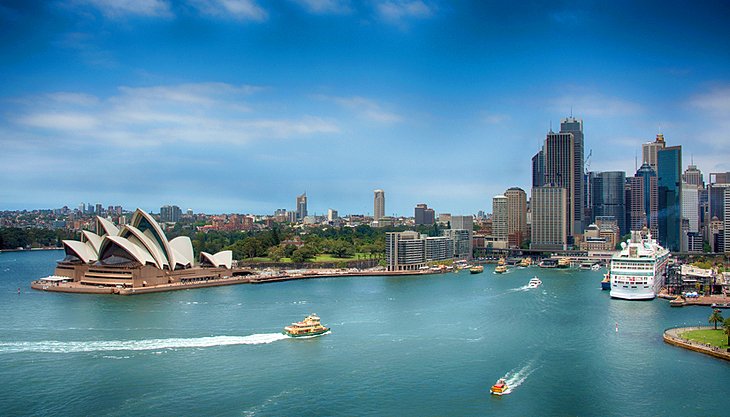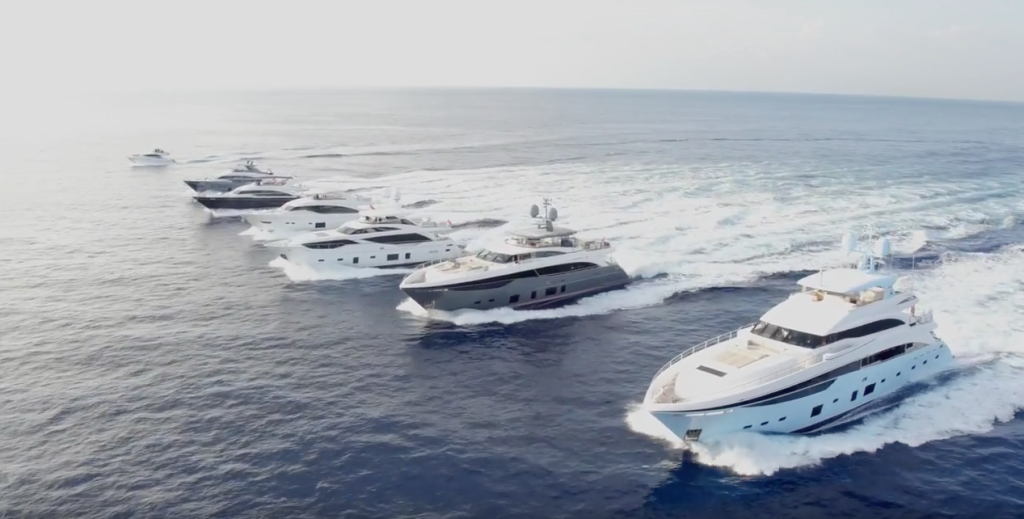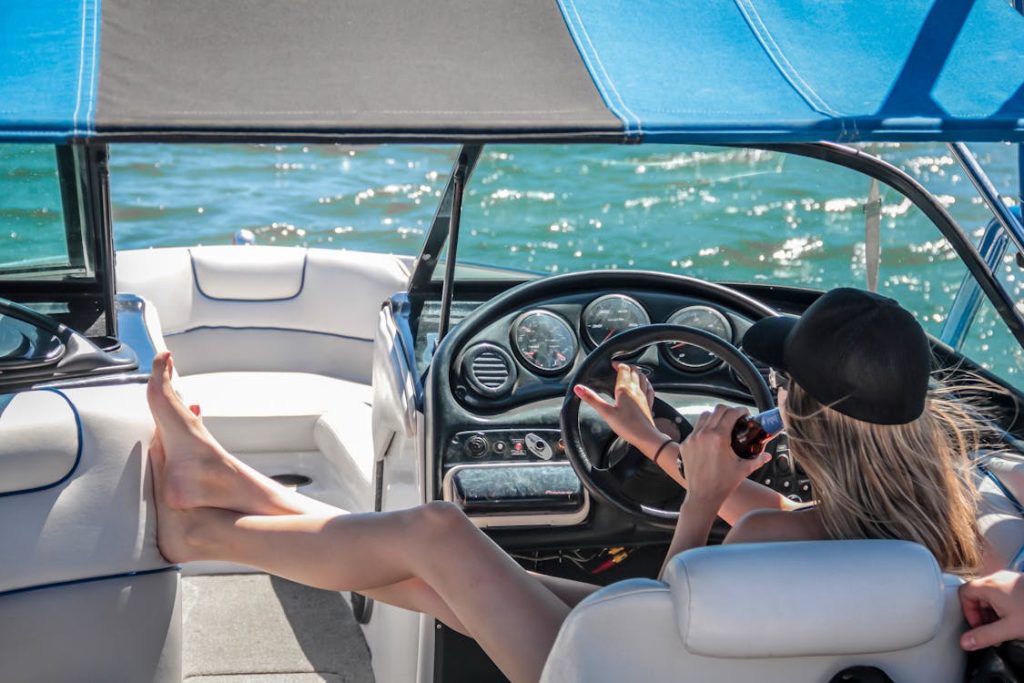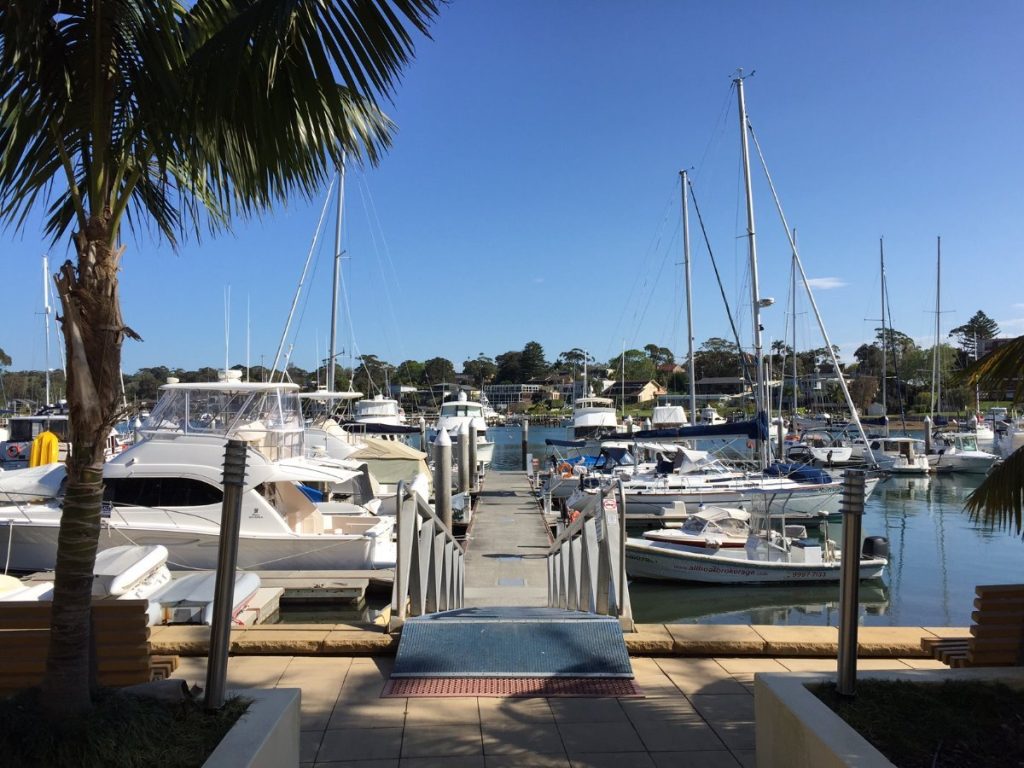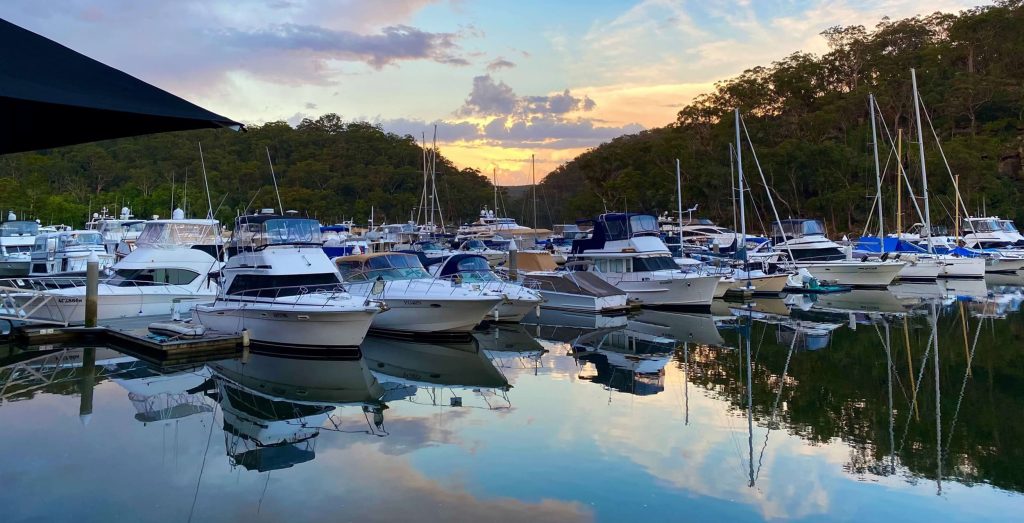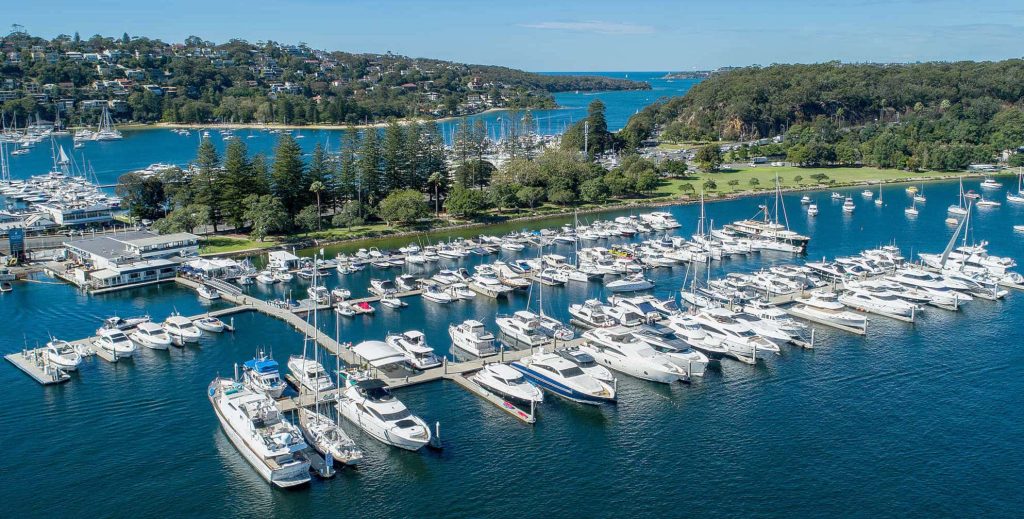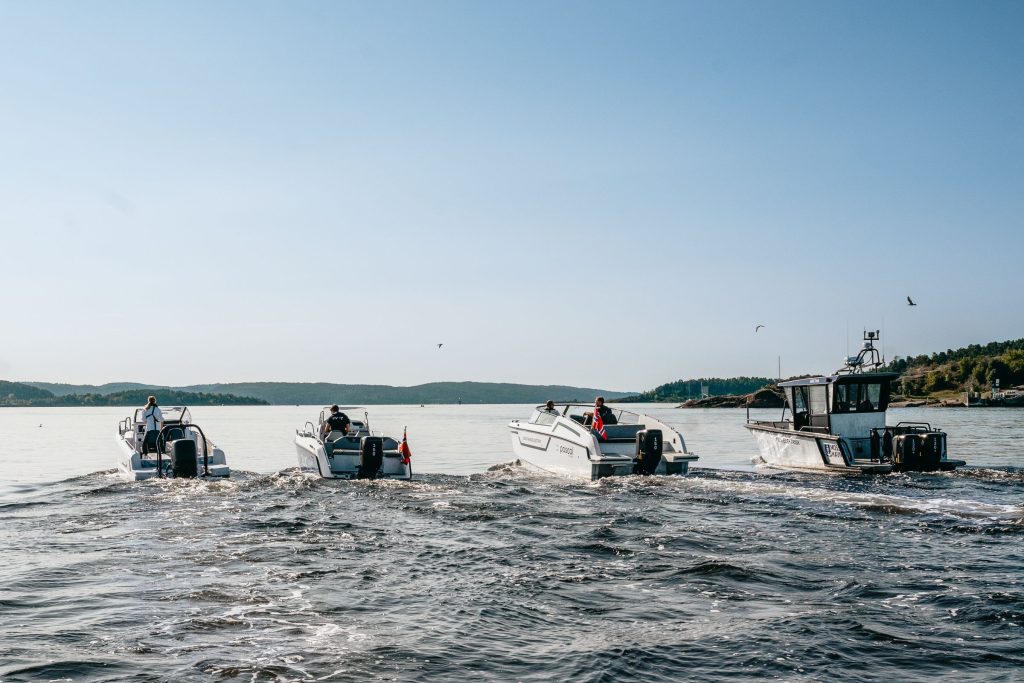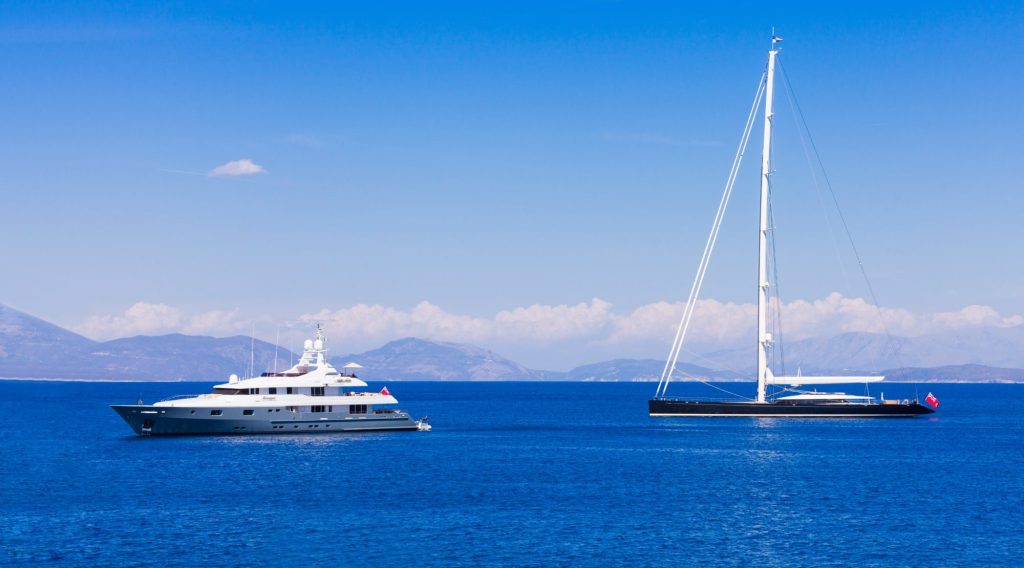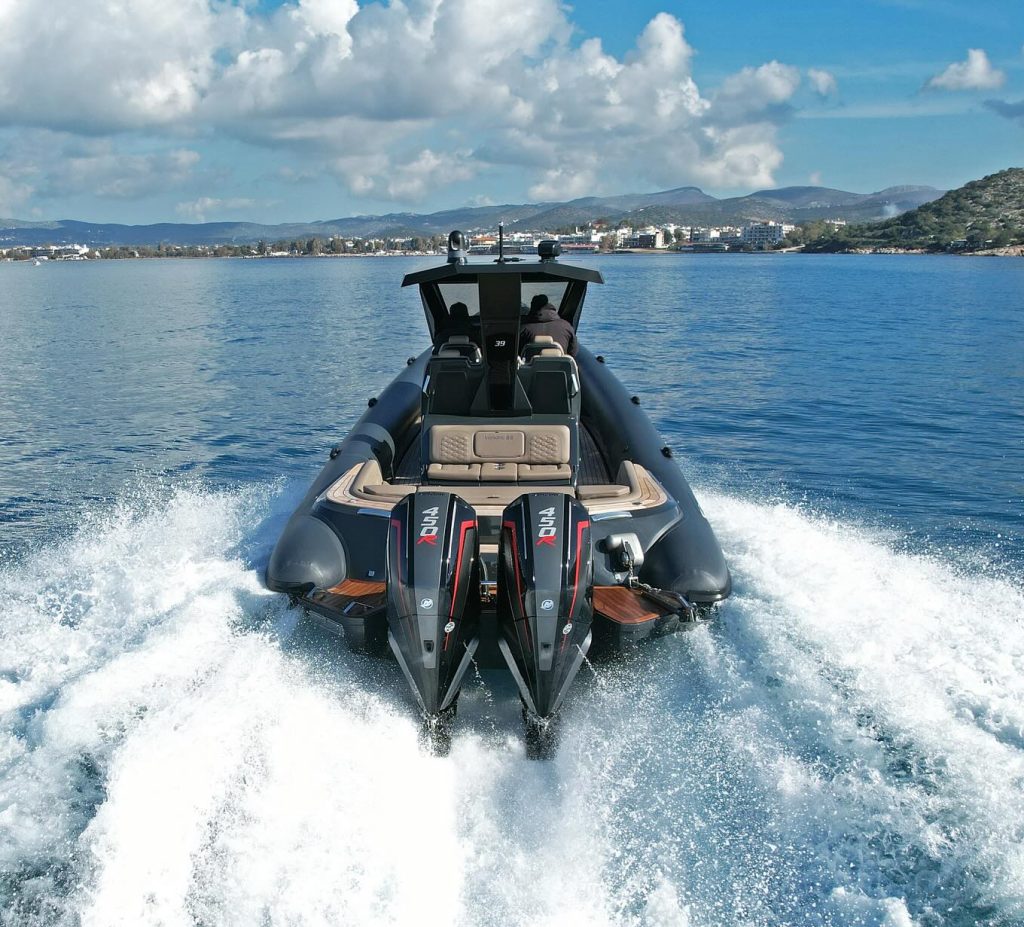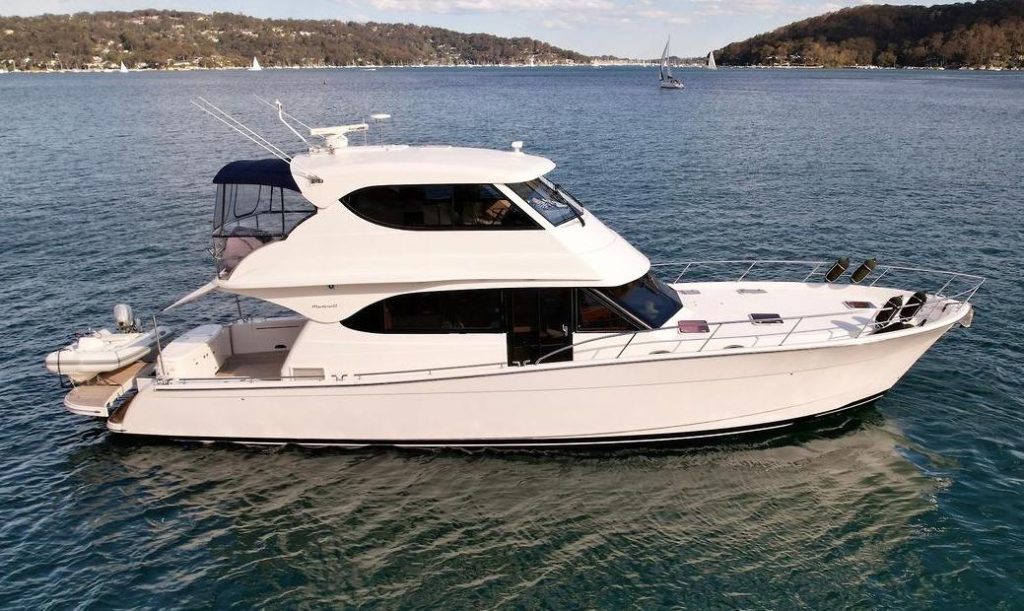“The Duchy Difference”
The Duchy 35 is clearly a beautiful vessel from every angle but she’s also a fantastic day boat and capable weekender with two comfortable cabins. This is a vessel where the pictures really can do all the talking so I hope you enjoy.
Credits: Dan Jones
AUDIO TRANSCRIPT
Okay, so I’m just coming into a little close-quarters scenario, just to give you guys a little bit of a feeling for what a vessel like this is like to operate at slow speed. First things first, I’m driving with these Nannis. These are twin 270-horsepower Nannis. They have Morse Control. I’m quite used to this. This is what you would find on a traditional sailing yacht or older power boat. When we say Morse Control, that means a cable connecting to the motors. Now, if you are not used to this or don’t want this, you don’t have to have it. Just upgrade to the Yanmar 350s. They’re a V8 and they have electronic throttles and it’s a completely different experience.
So let’s just put the boat in three metres of water. I’m just going to put myself in between these moorings here. I have a powered bow thruster here. Operated with the on and off buttons. Visibility is really good all around. I’m just going to stop the boat. I’m just going to do transverse thrust and turn the boat. Yeah, that’s pretty easy.
So this is a full-keel boat. We just saw her out of the water or not this particular one, another one of these out the water at the factory. I’m just going to keep that boat turning.
When you have a keel involved, you are going to have some natural resistance to the boat wanting to turn around. But with the proper location and the amount of torque available to me at the moment, I can just increase my power and the boat’s gonna go. Then I can decrease that power and if I’m not comfortable, or not prepared to do it with the throttles, I’ll have another option – the thrusters. Look at that! Plenty of power. No issues there.
“Upgrade to the Yanmar 350s. They’re a V8 and they have electronic throttles and it’s a completely different experience.”
So you can equip yourself with bow and stern thrusters if you see the need or you can just put a bow thruster on it because with the twin engines and with the bow thruster, she’s quite capable. So I don’t really see any challenges to that. If you are coming from a sailing yacht, if you’re coming from a motorboat, this seems pretty predictable. So, conservative boating, is probably the term I would use.
Let’s close that heavy solid door and let’s make our way out and take you home, I think. So we had downwind cruising before and we might have a little bit of upwind on the way home. We’ll just see how we go. The tide looks low. So I’m just gonna head out here and see if I can attain the deep stuff. I like deep water. It’s much better than shallow. So out we go!
So yeah, I see this boat being something you would quite easily be able to go and either retrieve the anchor, if you’re on anchor or go and drop the mooring back in the water, do it yourself, come back to this helm door, close it or leave it open and off you go. It’s as simple as that.
It’s a key start on these particular motors. I’ve got my RPMs on either side and then I’ve got my temps pressures and volts all displayed in an analogue display and then I have digital displays, as well. I can have radar, and I can have chart plotter, but this particular one doesn’t have the card in it, so we won’t see exact chart displays. I’m just keeping an eye on the depth and just putting it along here at a slow speed. It’s quite leisurely. The noise levels even though these Nannis, I would say are probably a little bit noisier than the Yanmars. Don’t really see much of an intrusion on my ability to socialise with friends because that engine bay was quite well insulated. So that’s okay.
I’m just cruising along here at 5.5 knots. We’re in an 8-knot zone at the moment so we don’t want to go any faster than eight knots for obvious reasons. So let’s just notch it up a little bit.
I’m just going to aim for that rock out there. If I go quiet, it means I’m concentrating because I don’t know these waters and the tidal range in England is not like Sydney. These guys here, when you go up some of these rivers, like we were just near the factory today, they all have yachts. They have legs on the side of them. They literally sit on the mud at low tide – that’s how much tidal range you get around here. It’s completely different. You must get some seriously ripping tides when it’s on the run. So I’d want to be paying attention around here in terms of anchoring your boat, that sort of thing. It’s a whole other kettle of fish in terms of calculating how much chain you’ve got out, that sort of thing. Also jumping in the water because it’s probably quite cold here. I don’t want to go jumping in front and get taken away from the tide and got to swim back to the boat. That’ll be a little bit awkward.
Okay, something just popped out of the water there. So there must be some sea life. I don’t know what that was. It looked like a seal. Lovely castle, it’s quite a pleasure.
We are now at 6 knots and let’s bring her up to 8. So you do really feel the keel keeping the boat on course. That keel is un-like some down-east-style boats that you see in America. They have the V section but the keel doesn’t start until about halfway down the back of the hull.
“The Keel starts at the bow and the keel carries all the way to the back of the boat”
But this one starts at the bow and the keel carries all the way to the back of the boat and so again, if you’ve sailed a full-keel sailing yacht, you’re going to feel some similarities. She’s got solid glass construction below the waterline and up to about this much above the waterline until it goes to a little bit of foam core and what’s that doing? It’s just giving you quite a little weight down low, giving you a really good centre of gravity and giving you a nice amount of stability.
We’ve got some good wind out there, so this will be a nice little ride back upwind to demonstrate what this boat is capable of. I do expect to get some water over the decks because that looks like a combination of wind and tide out there, but there are probably 15 to 20 plus knots of breeze there. So we’ll see how she feels.
Okay, we’ve got this isolated danger mark here, so I’m going to leave that to starboard and then I’ve got some shipping channel markers and we’re going to head towards the port of Falmouth in that direction, over there. We’re going to have some breeze across the decks from starboard to port. And probably a little bit of a short, sharp, fetchy type stuff in terms of the waves. So it’ll be interesting to see how the hull handles, going sort of across and up the wind, as opposed to down as we were before. I suspect, very comfortable because this is the style of hull that you want in these conditions.
Isn’t that cool? Why can’t we have castles back home? A lot of good castles. That’s great! I’m sure there’s a lot of very interesting history about this place.
Slowly increased the speed. So I got my wiper operation just here on the digital screen. I’ve got my Lenco trim tabs just here. I suspect I’m going to be dropping the trim tabs as we go upwind. It’s this kind of thing I would do on most power boats with a bit of a cutting bow, just to essentially have more cutting action into the waves to increase my comfort.
All right, 8 knots. So I’m just going to give one-third trim tabs down. I’m going to start bringing the speed up. I’m going to take that one-third to two-thirds. I’m just gonna sit it there at about 10 knots. Set my course.
So here we are getting exposed into the chop and the wind coming from the starboard side. Okay quite comfortable. I’m hoping you can see some of this water coming up over the windscreen. It’s not flat water, which is great for a test of a vessel like this. So let’s increase that speed. I feel like she wants to go and flatten out a little bit more in these upwind conditions. I’m not going to go straight into it just yet.
I’m just going to let the boat take the waves at a slightly awkward angle and see what we can demonstrate. This is comfortable! It’s incredibly comfortable. At 14 knots, the boat feels good. I’m giving it a little bit more bow down. Yeah, so you do notice that. You do notice it really locks in.
“This is comfortable! It’s incredibly comfortable.”
Now let’s go into the swell and increase the speed, just a little bit. So this is gentleman’s cruising right now. Hopefully, you can see on the camera, we’ve got whitecaps, we’ve got short and sharp waves. I could have a coffee sitting here and I would hardly spill the coffee. So that’s impressive and that’s the sort of thing, that I suspect many of you are going to be looking for at a certain stage in your life.
SUMMARY
So guys, that was an absolute pleasure. Who buys a boat like this? Somebody who wants to create incredibly comfortable, gentlemanly cruising experiences. Somebody who wants to enjoy the normal days, but also come out on days like today and think nothing of it, because that’s what a style of hull like this will do for you. And then of course, just somebody who wants ultimate British-handcrafted quality. it’s as simple as that. These boats, I’ll put them at the top end of the sort of boat that many of you are going to be comparing it with or to.
If you’re looking for something that you can consider as an investment, something that you consider as a family heirloom – this Duchy 35 is going to do that for you. This will make you happy for a long time.
My name’s Dan Jones. This has been Dan’s Boat Life. If you like this content, if you get value from it, just follow the channel. Give us a like. Share the videos with your mates. I hope it’s useful for you and if you do genuinely find it useful, consider supporting the Patreon. Thanks very much. See you on the next one!
The Duchy 35 is just one of the many impressive models in the Duchy Motor Launches range. To see the full list, here’s a complete overview of the Duchy range. If you believe this is the type of boat you’re seeking, please don’t hesitate to give us a call. If you want to know more, check out Part 1 of this review, the walkthrough, and the offshore sea trial articles.
